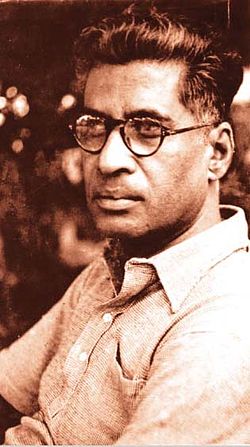Background
Indian political philosopher M. N. Roy began work on what would be his final major project, Reason, Romanticism and Revolution, in 1948. [1] Roy's process of research, writing, and revision would continue for nearly half a decade, with the final typescript prepared for the press in April 1952. [1]
In introducing his work, Roy asserted that modern civilization faced a "cultural and moral crisis" that compelled thoughtful people to seek a return to society's "humanist tradition". [2] Roy attributed this crisis to a negative byproduct of the 19th Century victory of skepticism and empiricism over other more immutable and deterministic belief systems — a process which not only "set human spirit free" but which also ushered in new forms of subjugation. [2] "If empiricism deposed reason from the seat of the supreme judge, pragmatism subordinated moral values to practical considerations," Roy declared. [2]
Reason, Romanticism and Revolution was in some ways an extension of an argument begun by Roy in his 1946 book, Beyond Communism to Humanism, in which the centralism and deterministic economic basis of Marxism was rejected as well as the atomized society associated with individualism, in favor of a loosely structured "radical democracy" of self-governing local units which administered society at a local level, coordinating a cooperative economy. [3]
Attempting to move past Marxism, Roy presented his book as a grand "humanist interpretation of cultural history" which also sought to "outline a comprehensive philosophy which links up social and political practice with a scientific metaphysics of rationality and ethics." [4]

